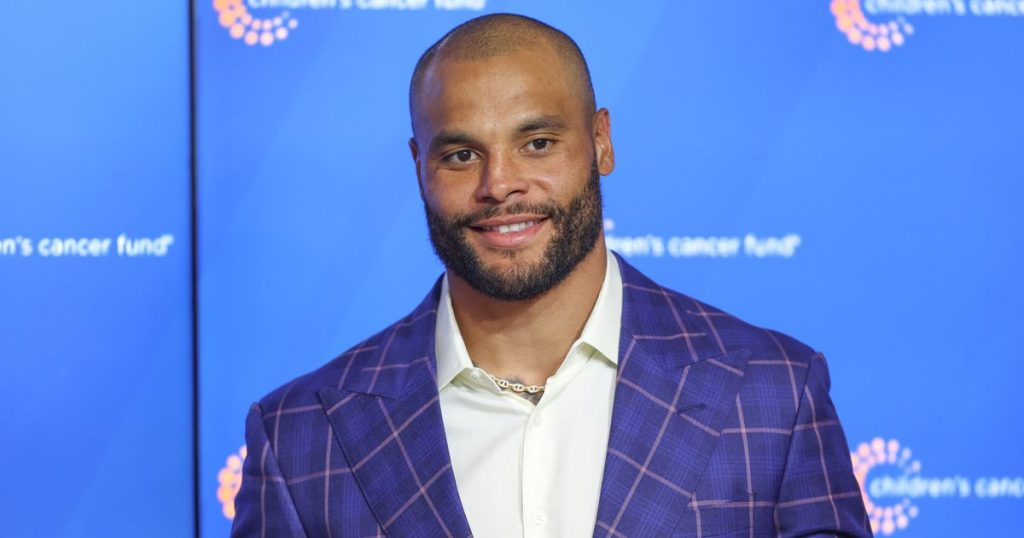Dak Prescott, the NFL’s leader in touchdown passes last season, stated that he would give up his fortune just to be able to play the game. Despite being in the final year of a $40 million annual contract, Prescott emphasized that he doesn’t play for money and would surrender it all just to be on the field. He remains focused on controlling what he can and letting the rest take care of itself in regards to his contract negotiations with the Cowboys.
Stephen A. Smith of ESPN suggested that if Prescott truly doesn’t play for money, he should consider accepting less so that other stars on the team can receive more. While acknowledging Prescott’s right to demand what the market allows, Smith warned against hypocrisy in claiming to play purely for the game while seeking a lucrative contract. Similarly, Kyle Brandt of the NFL Network advised Prescott to potentially accept the league minimum in order to free up more money for the team to bring in additional talent to help win a Super Bowl.
Prescott’s contributions on the field for the Cowboys over eight seasons include 29,459 passing yards and 202 touchdown passes, ranking him second all-time in both categories for the team. Despite his individual success, the team has not advanced past the conference championship during his tenure, let alone reached a Super Bowl. This has led to questions about the team’s ability to build a championship-winning roster around Prescott, with some suggesting that his contract demands may be hindering the team’s ability to bring in the necessary talent.
The debate surrounding Prescott’s contract negotiations highlights the balance between individual compensation and team success in professional sports. While players like Prescott have the right to seek fair market value for their contributions, there is also a collective interest in ensuring that the team has the resources to build a competitive roster. As Prescott navigates his contract situation with the Cowboys, the broader question of how to balance individual financial gain with team success remains central to discussions within the NFL and other professional sports leagues.
Prescott’s comments about playing for the love of the game rather than money reflect a common sentiment among athletes who are passionate about their sport. While financial considerations are undeniably important, many athletes prioritize the opportunity to compete and showcase their talents above all else. Prescott’s willingness to potentially sacrifice a large contract in favor of playing the game he loves underscores the deep-rooted passion that drives many athletes to excel in their respective sports.
As Prescott continues to navigate his contract negotiations with the Cowboys, the broader implications of his stance on playing for the love of the game resonate with fans and analysts alike. The tension between individual financial interests and team success is a common theme in professional sports, with athletes often facing difficult decisions about how to balance their personal goals with the collective objectives of the team. Prescott’s willingness to prioritize playing the game over financial gain adds a layer of complexity to his contract negotiations and underscores the enduring appeal of sports as a pursuit driven by passion and competition.


